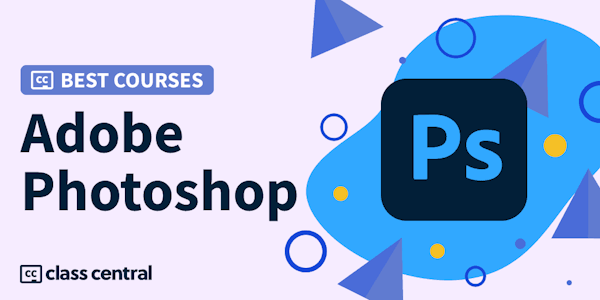Sharpen your Photoshop skills by learning advanced techniques from industry expert Deke McClelland.
Overview
Syllabus
Introduction
- Welcome to One-on-One
- Becoming a lean, mean, imaging machine
- Loading my custom dekeKeys shortcuts
- Your new custom keyboard shortcuts
- Restoring Photoshop default shortcuts
- Photoshop panel and toolbox shortcuts
- Top-secret tricks for shortcut enthusiasts
- Five pro-level Preferences settings
- Customizing Photoshop menus
- Customizing a Photoshop toolbox
- Choose your color space: sRGB or Adobe RGB
- Upgrading from sRGB to Adobe RGB
- Assigning and converting color profiles
- Delving the Filter menu to great effect
- Applying a dynamic Wave filter
- Rendering type in smoke
- Creating a realistic pointillism effect
- Giving your painting texture with Emboss
- Creating a high-color High Pass effect
- Hunting down seams with the Offset filter
- Turning a cityscape into a tiny planet
- Integrating and shading your tiny planet
- Creating trendy, dynamic twirl art
- Creating symmetrical twirl art
- Switching out the image in a dynamic effect
- Upping the resolution of dynamic artwork
- Fragmenting a photo through ribbed glass
- Distorting an image with the Glass filter
- Blur and noise focus your attention
- Adding depth of field with Field Blur
- Masking a Blur Gallery effect
- Enhancing a Smart Filter mask
- Matching natural noise with the Blur Gallery
- Introducing noise with Field Blur
- Light Bokeh and Bokeh Color
- Painting with randomly fluctuating colors
- Creating a blurry vignette with Iris Blur
- Backing off a Blur Gallery filter
- Creating a fake miniature with Tilt Shift
- Simulating motion with the Path Blur filter
- Creating elliptical motion with Spin Blur
- Reducing noise in Camera Raw
- Sharpening fine detail in Camera Raw
- Rounding and blurring letterforms
- Turning a photo into a dot drawing
- Creating a high-resolution dot drawing
- Using the image to select itself
- A quick refresher on layer masking
- Initiating a mask as an alpha channel
- Deploying an alpha channel as a layer mask
- Introducing the Calculations command
- Masking a subject set against black or white
- Saving alpha channels to the TIFF format
- Painting contrast with the Overlay mode
- Eliminating halos with the Minimum filter
- Restoring details with the History brush
- Masking a subject against a green screen
- Enhancing and inverting a mask with Levels
- Painting away color fringing
- Immersing an image in its new environment
- Masking wispy, voluminous, untamed hair
- Preserving very fine hair details
- Compositing hair to match a new background
- Tracing an image, point-by-point
- Introducing the Paths panel
- The Freeform and standard Pen tools
- Adding and deleting anchor points
- Starting a path outline with an ellipse
- Drawing smooth and cusp points
- Deploying path outlines as a vector mask
- Combining a layer mask with a vector mask
- Brushing along a path outline
- Adding to an existing vector mask
- Perfecting hair inside a vector mask
- Bolstering hair with an Overlay layer
- Drawing perfect eye masks
- Duplicating and masking entire groups
- Masking with vector-based letterforms
- Creating ultra high-resolution imagery
- Introducing the Photomerge command
- Understanding the Layout settings
- Auto-aligning and auto-blending photos
- Merging, cropping, and scaling a panorama
- Correcting a distorted horizon
- Retouching and enhancing a panorama
- Assembling a vertical, interior panorama
- Stitching together scanned artwork
- Using the Adaptive Wide Angle filter
- Why edit video in Photoshop?
- Loading video clips into Photoshop
- Creating gradually fading transitions
- Activating some useful keyboard shortcuts
- Adding text to your video
- Combining your text into video groups
- Adding motion to text, or any other layer
- Adding soundtracks and voiceovers
- Exporting and examining your video
- Editing an existing video composition
- Splitting a clip at the playhead
- Adding a clip to the beginning of a track
- Applying smart filters to a video clip
- Advanced layer options
- Introducing layer comps
- Creating a dynamic layer comp
- Updating broken layer comps
- Using layer comps to compare blend settings
- Introducing artboards
- Creating and cropping a new artboard
- Adding and duplicating artboards
- Moving layers in and out of artboards
- Alignment and artboard-specific guides
- Exporting artboards as independent assets
- 17 pages of Photoshop keyboard shortcuts
- Exporting artboards to a multipage PDF
- Collaborating with coworkers and the cloud
- Introducing the Libraries panel
- Retrieving, duplicating, and sharing assets
- Collaborating with the help of smart objects
- Collecting styles in the Libraries panel
- Auto-extracting assets into a new library
- Editing cloud-based library assets
- Updating modified or missing assets
- Sharing an asset created in Illustrator
- Several incentives to recording actions
- Introducing the Actions panel
- Recording a simple but practical action
- Modifying and playing a specific step
- Customizing settings during playback
- Adding steps to an existing action
- Actioning a consistent image resolution
- Modifying an adjustment and adding Save As
- Actioning the creation of flat CMYK files
- Batch processing an entire folder of images
- Saving and loading your actions
- Goodbye
Taught by
Deke McClelland



